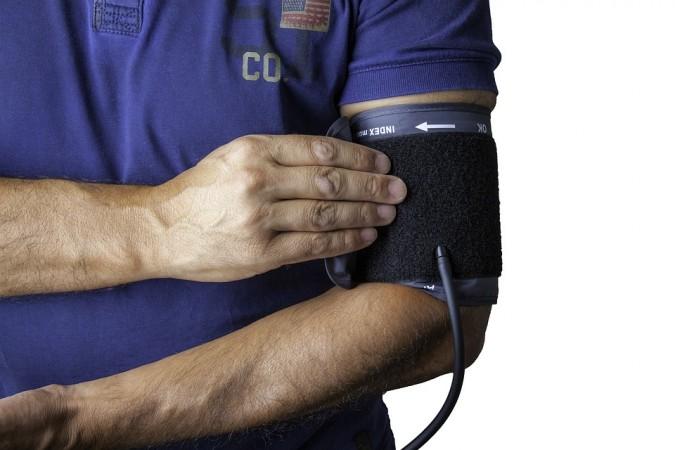Non-communicable diseases (NCDs) like obesity, diabetes, hypertension, and cholesterol are rising rampantly in India, and are also the leading cause of death -- about 65 per cent, according to a report on Thursday.
The report, titled 'Health of the Nation 2023', by Apollo Hospitals gives insights into the prevalence and risk factors of NCDs. It derives from data of over 500,000 health checks over the past three years.
The report showed a 50 per cent increase in the prevalence of obesity among Indians between 2019 and 2022, particularly in people less than 45 years of age (43 per cent) and people over the age of 45 (60 per cent).
Dyslipidemia or cholesterol irregularities has seen an 18 per cent increase in prevalence among young Indians between 2019 and 2022, while among those over 45 years of age there has been more than 35 per cent increase.
Diagnosis of conditions like diabetes (8 per cent) and hypertension (11 per cent) has also seen an increase in the last three years.

Chronic stress and anxiety increase the risk of incidence of hypertension by 1.5 times and diabetes by up to 2 times. Men with chronic stress have double the risk of incidence of diabetes than women.
"Preventive healthcare needs to become a national priority. Over the past 3 decades, non-communicable diseases have become the leading cause of death and suffering, contributing to 65 per cent of deaths in India," said Dr Prathap Reddy, Chairman, Apollo Hospitals Group, in a statement.
"NCDs affect not just health, but also productivity and economic growth. The estimated economic burden on India is expected to be about $4.8 trillion by 2030," he added.
Further, the report showed healthy sleep as an important indicator of overall health. Impaired metabolism was also closely linked with digestive irregularities, such as gas/bloating, heaviness post-meal, burning sensation, belch/burp. The analysis found that 64 per cent of people had digestive irregularities, going up to 81 per cent amongst diabetics.

The silent epidemic of NCDs is behind 40 per cent of all hospital stays, according to the report. It stressed the need for regular and comprehensive health checks, starting at a young age which can significantly reduce mortality rates, disease incidence as well as the frequency of hospital visits through our lifespan.
"As the youngest and fastest growing major economy in the world, the health of our nation is a critical indicator of our future, and the health of our people will determine how effectively we live up to our full potential. What we need is a proactive and highly defined strategy to minimise the impact of NCDs. And the best solution lies in prevention," Reddy said.
(With inputs from IANS)

















